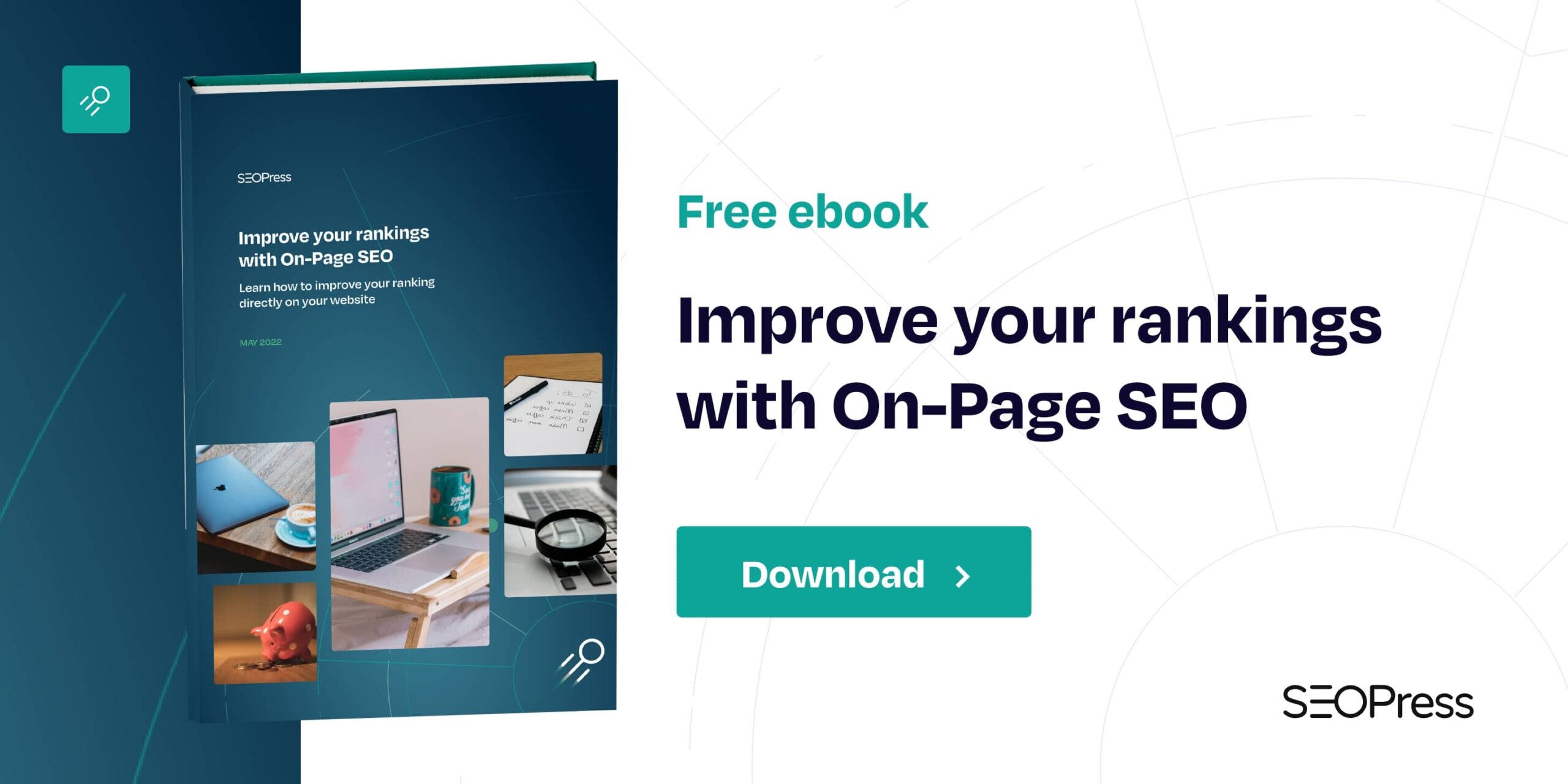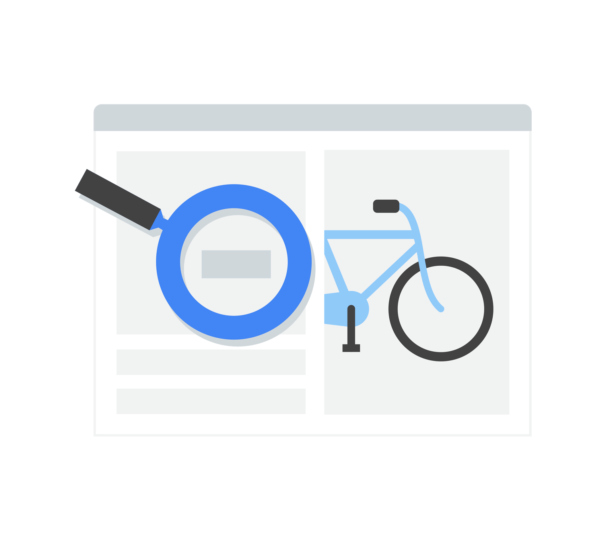On-page SEO refers to optimizations that you can perform on your website to improve ranking. It is opposed to off-page SEO which refers to ranking factors such as links, reviews and social networks that are off-site.
Although on-page is mainly used as a synonym for on-site, it can sometimes be used to describe optimizations applicable to a specific page for a specific keyword. Techniques such as adding keywords to important elements of your page such as its URL, TITLE tag or H1 title.
Some on-page optimizations can be carried at site level to improve the SEO of all pages. For example, improving page speed by migrating to a faster server.
The main concept to keep in mind about On-page SEO is that it consists of improvements that website owners should be able to implement directly on their website to improve ranking. However, CMS software like WordPress can sometimes restrict owners from implementing all the possible tweaks possible to optimize a site for SEO.

On-Page Ranking Factors
There is some dispute as to what signals are used by search engines to rank pages. Before exploring an exhaustive list of possible ranking factors, it is interesting to analyze what Google tells us about how its search algorithms work in its presentation How Search Works.

This document reveals that Google uses many algorithms to rank pages in search results and that many signals used by these algorithms use information it finds on the pages themselves. The key factors are listed as
- Meaning of your query,
- Relevance of webpages,
- Quality of content, Usability of webpages and
- Context and Settings.
In reading this document, we can identify some important on-page ranking factors.
Freshness
Google describes the Freshness algorithm in the Meaning of the query section of How Search Works. For some queries Google will rank recently created pages better than old content. Regularly writing new posts can therefore give you an advantage in ranking for certain keywords. WordPress posts also automatically contain their publication date, making it easier for Google to recognize fresh content.
Keyword Usage
Google says that a page’s relevance to the user’s search is a key factor in ranking and that “the most basic signal that information is relevant is when a webpage contains the same keywords as (the) search query.”
It goes on to state that “If those keywords appear on the page, or if they appear in the headings or body of the text, the information is more likely to be relevant.”
It is possible to rank pages for queries that do not contain a targeted search term, but typically you should follow this advice and make sure that the keyword you are targeting is not only visible in a post, but also make sure that it is used in “headings” such as the post’s title; making sure that this element is used as a H1 title by your theme.
We can also advise using the keyword in the TITLE tags, URLs (via the permalink) and META Descriptions.
Quality of the answer
Beyond simple keyword matching, Google’s improved algorithms now attempt to “assess whether a webpage contains an answer to your search query, rather than just repeating the same question.”
An algorithm evaluates the quality of the answer, including the presence of other relevant content such as video, images and lists. Giving the example of a person searching for “dogs” Google suggests that a high-quality answer would have “content such as pictures of dogs, videos, or even a list of breeds”. A low-quality answer would be a text repeating the word “dogs” hundreds of times.
Writing good answers to questions is important, but it is also interesting to provide extra content in the form of images, videos and lists. WordPress makes it easy to add all these elements to posts.
Although it is not an on-page factor, it is interesting to note that Google says it can also use “aggregated and anonymized interaction data” to evaluate the quality of an answer on a page. We can assume that this means that Google measures the time users spend on a page and use it as ranking factor.
This is another encouragement to create engaging content! Users spending a long time reading your content may be a ranking factor!
Quality of content
The section on Quality of content deals with off-site signals including links (PageRank), EAT (expertise, authoritativeness, and trustworthiness) as well as anti-spam algorithms that can analyze off-page factors such as links, but also on-page factors including the HTML and text.
It is believed that Google is getting better and better at detecting automatically generated content and making sure that pages created by copying content from other websites do not rank in search results.
Whereas EAT is mainly an off-site factor, it is important to make sure that Google can correctly identify the organization or person behind a site or a particular post. Using structured data such as LocalBusiness schema is the best way of making sure that Google can link a website to a local business. It is also recommended adding your company name, postal address and telephone number very clearly on every page of your website. As well as clearly identifying the authors of posts.
Usability of webpages
Another section of the How Google Works document, Usability of webpages, deals with factors influencing user experience. These factors are now included in Google search algorithms as Page Experience. These include page speed, but also the compatibility of your site with mobile devices and the use of HTTPS.
Optimizing for page speed and more importantly Core Web Vitals is an important on-page improvement that can help rank higher on Google and generate more traffic for your website.
Getting indexed as a ranking factor
How Search Works cites crawling and indexing under the title The Fundamentals of Search. Yet these are rarely cited as ranking factors. Google must be able to find a page and parse information from it correctly. Otherwise, that page may never be included in Google’s index of pages, making it impossible for it to feature in search results.
On-page factors such as internal links, redirections, robots.txt and sitemaps also need to be included in possible on-page SEO improvements you should be able to carry out to your own website. Google Search Console can be useful for detecting pages that Google has found but not indexed.
How to do on-page SEO with WordPress
WordPress makes it easy to write and publish posts regularly. You can concentrate on producing quality answers rather than coding HTML, CSS and Javascript. However, you will need one or more plugins to accomplish all on-page optimizations without coding.
Using the SEOPress plugin you perform a lot of SEO jobs such as
- Customizing TITLE tags
- Editing META Descriptions
- Content analysis
- Adding LocalBusiness schema
- Providing a sitemap
- Managing robot META tags
- Adding Google Search Console verification codes
- More schema structured data types
- Redirections
- Editing robots.txt
- Breadcrumbs
- Google Page Speed testing
Because keyword usage remains one of the most important ranking factors, you may be interested in reading our article How to optimize WordPress posts for a keyword next.
Also see our other articles on How to add schema markup to WordPress using the SEOPress plugin, Optimizing WordPress sites for Google EAT and 10 tips to boost your site speed to get started on other important on-page SEO jobs. More articles will follow in the weeks to come.
Next steps
Browse our selection of articles encompassing a single topic, allowing you to deepen your understanding and explore exciting new ideas:
- Improve your rankings with on-page SEO
- How to use Content Analysis to Improve on-page SEO in WordPress
- Monitoring on-page optimization for a WordPress site
- Making money from on-page SEO
- 30 on-page SEO tips for wordpress




